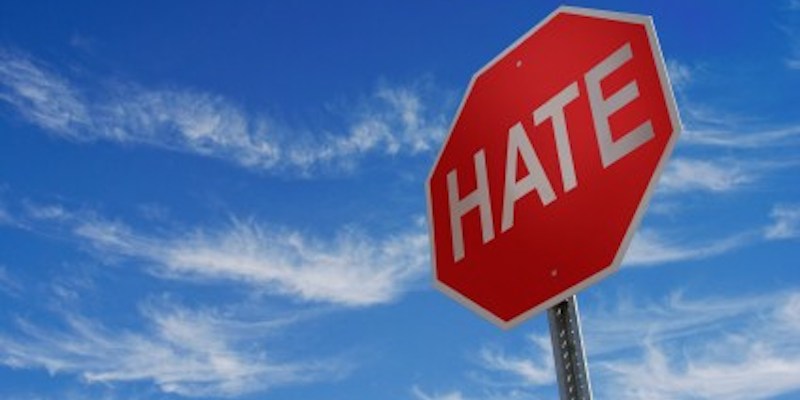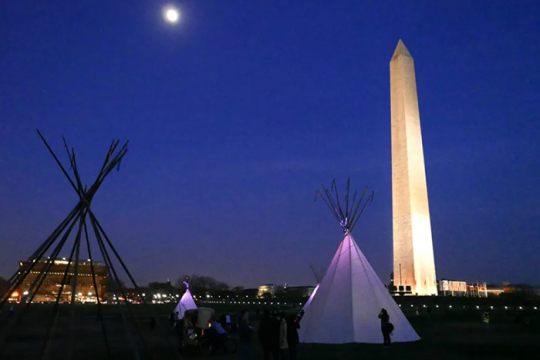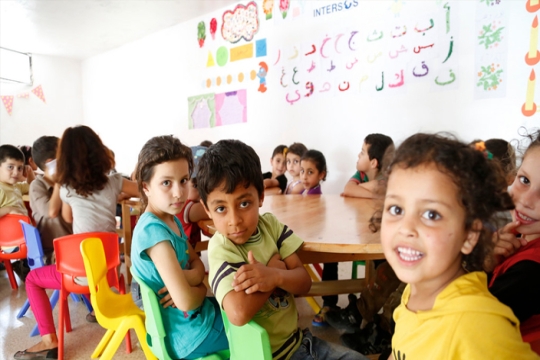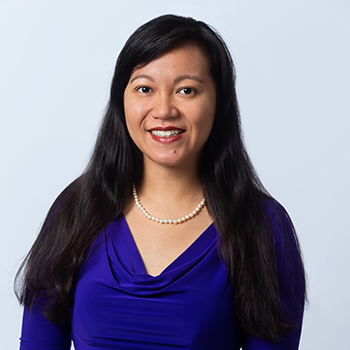
In April 2022, I went to Farragut North Station to refill my metro card. As I walked to where the escalators go down to the subway level, there was a woman leaving. When she saw me, she changed directions, going back to the down-escalator entrance. She didn't go down the escalator when I gave her the right-of-way, just stared at me, so I got onto the escalator.
I looked back and saw her, still at the top of the escalator, grabbing one of the moveable metal yellow temporary barricades - the kind Metro workers use to block access to a nonfunctioning escalator.
A primitive human survival instinct suddenly awakened and I realized: she's going to throw that barricade at me.
In the interminable eternity before the metal barricade finally fell, I was terrified it was going to hit me in the head or legs and cause me to fall down the escalator.
The barricade landed three feet away from me on the escalator. Semi-relieved, I ran down the escalator, gripping the railing as tightly as I could while still running down the escalator. I was afraid. "What-if" questions overwhelmed me: What if I fall? What if she grabs another barricade to throw at me? What if she hits me in the head or torso or legs? What if the one she already threw trips me?
I reached the subway level physically unharmed and grateful for my sneakers. After refilling my metro card, I looked back at the escalators. The yellow metal barricade was at the bottom of the escalator. It chilled me seeing it there, proof of what had just happened to me. When I came back up to street level, the woman was gone.
I've re-examined every aspect of the incident over in my mind, sifting through the memories, trying to glean even the smallest insights.
I look like a petite Asian woman. My would-be assailant saw me enter as she was exiting and promptly doubled back to the escalators. When I smiled and tried to let her go down the escalator first, she just stared at me. I remember being a little taken aback by how cold her stare was, but just got onto the escalator.
One question in particular lingers in my mind: What reasonable explanation could there be for her to have thrown a barricade down at me?
There is no reasonable explanation. Against the dark backdrop of the pandemic and rising hate crimes, I believe she wanted to hurt me because I look Asian. This terrifies me because she caught me on a day that I was aware of my surroundings. I fear now for the next Asian or Asian-presenting woman caught off-guard as she goes down that escalator. Will she be the next name to spark intense outcry and then just as quickly fade from public consciousness - just as Xiaojie Tan, Daoyou Feng, Hyun Jung Grant, Soon Chung Park, Suncha Kim, Yong Ae Yue, Michelle Alyssa Go, and Christina Yuna Lee?
I have faced misogynistic, anti-Asian, and antisemitic incidents alike, sometimes in combination. I know - in theory, anyway - that every incident I've ever experienced was selfsame, strange fruit borne by the tree of white supremacy. I also know that every ideology of hate - racism, misogyny, homophobia, xenophobia - is stoppable, but only if we present a united front. By "we," I do not just mean every marginalized group facing hatred and bigotry for their race, religion, ethnicity, national origin, gender, sexual orientation, and other qualities intrinsic and immutable to them - I also mean any caring, compassionate human being. Bigots of every ideology are readily outnumbered by the marginalized groups they attempt to victimize and Good Samaritans working together.
This solidarity is why the Unity March is so important. The Unity March is an Asian-American-led action on June 25 in Washington, D.C. that aims to advance socioeconomic and cultural equity, racial justice, and solidarity through diverse partnership. It is the opening salvo for increased Asian American and Pacific Islander (AAPI) involvement in engagement, organization, and advocacy spaces. AAPI hate has long gone unnoticed and underreported, but the historic and ongoing racism spurred by the COVID-19 pandemic in the form of increasingly vicious anti-AAPI sentiment and verbal and physical attacks emphasize the need for action and unity. As Jews, when we consider the Asian-Jewish members of our own Reform Jewish family as well as the brutality of historic and ongoing antisemitism, the Unity March, its goals, and its ideals should be personal to all of us.
My bat mitzvah Torah portion was K'doshim, the Holiness Code. One line has always stood out to me: "You shall not hate your kinsfolk in your heart. Reprove your kinsman but incur no guilt because of him" (Leviticus 19:16). These two sentences fascinate me because they command telling the truth and warn of the consequences of not expressing truth. Withholding leads to self-destructive pain and rage. Opening up to others is a herculean but vital duty: it gives those around you, your kinsfolk, the opportunity to understand you and the inspiration to do better. Sharing your truth lays the foundations for justice and enables the possibility of healing and wholeness. My hope is that the Unity March is the beginning of increased Reform Jewish engagement with our AAPI siblings and provides key foundational understanding of what the AAPI community needs and what we can accomplish together, in partnership.
Join the Unity March on June 25 in Washington, D.C.
If you've experienced an incident or hate crime because you are Asian or someone mistook you to be Asian, please report it through Stop AAPI Hate's incident reporting form.
If you've experienced an antisemitic incident, please report it through the ADL-URJ incident reporting form.
Read this post about working in solidarity against anti-Asian hate to learn more about the intersection of the Asian American and Jewish experience.
Related Posts

Native American Heritage Month: Continued Support for the Indigenous Population is a Necessity

Congress Must Expand the Child Tax Credit, a Powerful Tool Proven to Reduce Poverty


